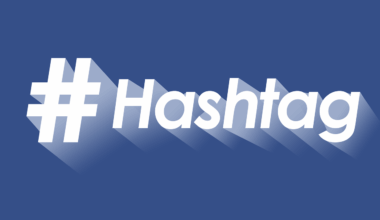Cost-Effective Strategies for Facebook Ads on a Tight Budget
Managing a Facebook Ads budget can be challenging, especially when resources are scarce. To maximize your return on investment, it’s essential to implement cost-effective strategies that can help you reach your advertising goals without overspending. One crucial step is to define clear objectives for your ads. Knowing whether your goal is brand awareness, lead generation, or website traffic can significantly influence how you allocate your budget. Creating tailored ad sets for each objective allows for more targeted spending. Another vital aspect is audience targeting; refining your audience ensures your ads reach potential customers who are most likely to engage. Utilize Facebook’s Audience Insights to identify key demographics such as age, interests, and location that align with your products or services. Testing different ad formats is also vital. Consider utilizing carousel ads or video content to understand which performs better with your audience. Lastly, set daily limits on your budget to control costs while you monitor the performance of your campaigns, adjusting as necessary to optimize results effectively.
Another aspect to consider for effective budget management is ad scheduling. Facebook offers the option to run ads only on specific days or during certain hours when your target audience is most active. This strategy can help you lower costs by ensuring your ads don’t run when they’re least effective. It’s essential to analyze past performance data to determine peak engagement times, allowing you to capitalize on moments when your audience is online. Additionally, consider using Facebook’s A/B testing feature for different ad variations. By testing multiple headlines, images, and calls to action, you can identify the combinations that yield the highest engagement rates. This data-driven approach ensures that your budget is allocated toward the most effective ads, providing vital insights into what resonates with your audience. Furthermore, employing retargeting strategies can enhance your campaign’s efficiency. Retarget ads are shown to individuals who have previously interacted with your brand, increasing the chance of conversions without needing to reach new users. It’s a smart way to get the most out of your limited budget.
Leveraging Organic Strategies Alongside Paid Ads
Incorporating organic strategies into your Facebook marketing plan can significantly enhance the efficacy of your paid ads. Develop a consistent organic posting schedule that engages your audience, building brand loyalty over time without additional costs. When users are familiar with your brand, they are more likely to respond positively to your ads, making every penny spent more effective. Encourage user-generated content, as it fosters authenticity and can create a snowball effect, leading to broader reach and engagement without additional advertising expense. Moreover, joining relevant groups related to your niche can create opportunities to share your expertise and drive engagement towards your page organically. Participate actively and avoid spamming, as this will build trust and credibility with potential customers. Collaborate with influencers in your field who can promote your brand in exchange for free products or services, rather than costly ad placements. Finally, analyze the performance of your organic strategies regularly; understanding what’s working helps you refine both your organic and paid approaches, ensuring a harmonious blend that maximizes your resource utilization.
Monitoring your Facebook Ads performance effectively can lead to significant budget savings. Utilize Facebook Analytics to track your ads’ performance metrics, including click-through rates and conversion rates. By analyzing this data, you can pinpoint underperforming ads and make informed decisions on whether to optimize or discontinue them. It’s crucial to keep a close eye on the Cost Per Click (CPC) and Cost Per Acquisition (CPA) metrics to ensure you’re not overspending. Establishing tangible, measurable key performance indicators (KPIs) is vital for long-term success and for keeping your budget in check. Regularly review your ad performance—weekly or bi-weekly—to identify trends and adjust your budget allocations accordingly. As you optimize your ads based on your findings, you’ll develop a deeper understanding of what resonates with your audience and can optimize budget allocation further. Additionally, consider uncovering trends within your data that could inform future campaigns. Whether it’s a particular demographic that is converting better, or specific times that lead to higher engagement, every insight contributes to making better use of your budget.
Utilizing Facebook Pixel for Targeting and Optimization
The Facebook Pixel is an invaluable tool for advertisers looking to make every dollar count. By installing the pixel on your website, you can track actions taken by users after interacting with your ads, gaining insights that can significantly enhance your advertising strategy. This tracking allows for more precise targeting, enabling you to reach users who are more likely to convert based on their historical actions. Additionally, retarget users who clicked on your ads or visited your website but did not make a purchase, keeping your brand top-of-mind and potentially converting them with tailored messaging. Use this data to create lookalike audiences, targeting new users who share characteristics with your best existing customers, thus optimizing your ad spend effectively. Furthermore, examine the conversion data available via the pixel to determine which ads are leading to actual sales, allowing you to shift your budget toward those high-performing campaigns. Investing time in fully understanding the Facebook Pixel can yield substantial returns and streamline your budgeting decisions.
Additionally, taking advantage of seasonal trends can provide significant boosts to your advertising strategy while allowing for effective budget management. Planning campaigns around holidays or events relevant to your business can help capture higher engagement levels. Researching peak seasons for your industry gives insight into when to allocate increased budgets for targeted ads. For example, if your business pertains to home improvement, advertising during spring can be quite effective. Create specific, time-sensitive promotions to encourage immediate action and conversion. This urgency can compel potential customers to engage with your ads and complete purchases. Moreover, consider diversifying your ad creative for these seasonal campaigns to keep your content fresh, aligning it with your campaign objectives. This can be in the form of distinctive graphics, tailored text, or even utilizing different ad placement strategies. Regularly review previous seasonal campaign performances to determine what worked best and apply those learnings to future promotions. Ultimately, leveraging seasons effectively aligns your budget management practices with heightened engagement opportunities.
Collaborative Campaigns for Broader Reach
Engaging in collaborative campaigns with complementary businesses can be an excellent strategy for maximizing your Facebook Ads budget. By sharing advertising costs, you can access a broader audience without significant financial strain. Look for partnerships with businesses that complement your offerings; for example, a local bakery and a coffee shop might collaborate on a joint promotion. This mutually beneficial relationship allows both parties to advertise to each other’s customers, effectively doubling your reach. Plan campaigns together, combining your creative strategies, and share the costs associated with running ads. This also fosters a sense of community, attracting loyal customers interested in supporting local businesses. Don’t hesitate to explore other platforms outside of Facebook to expand partnership possibilities, such as Instagram or email marketing. Co-hosting events or contests can also be a wonderful way to promote both brands effectively. As you navigate these partnerships, remember to measure the success of your joint campaigns, determining the return on investment. Focusing on results allows both parties to optimize future collaborations effectively.
A final yet crucial aspect of managing a Facebook Ads budget is staying updated on Facebook’s ever-evolving advertising policies and features. Continuous learning ensures you make the most of new tools and budget options available. Regularly visiting Facebook’s business blog or joining related webinars can give insights into the latest trends and strategies. Moreover, being well-versed in policy changes or updates can prevent costly mistakes and ad disapprovals. Forums and Facebook groups dedicated to digital marketing can also provide valuable advice from fellow advertisers. Consider following industry leaders or experts on social media to stay informed about best practices and innovative approaches they share. Experiment with new creative formats or ad placements as they become available to identify opportunities for enhancing your campaign effectiveness. Join training sessions to learn how to best utilize these features tailored to your budget strategy. Being proactive in seeking information can lead to more strategic planning, ensuring your limited resources are used wisely while maximizing impact and effectiveness. Prioritizing continuous improvement reflects a commitment to achieving better results with your Facebook ad investment.





